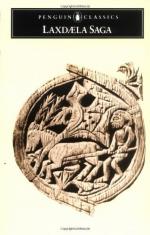CHAP. XVI
Thord becomes Olaf’s Foster Father, A.D. 950
About this time Asgaut came home. Vigdis greeted him, and asked him what sort of reception they had had at Sheepfell. He gave a good account of it, and told her the words wherewith Thorolf had spoken out his mind. [Sidenote: The reward of Asgaut] She was very pleased at that. “And you, Asgaut,” she said, “have done your part well and faithfully, and you shall now know speedily what wages you have worked for. I give you your freedom, so that from this day forth you shall bear the title of a freeman. Therewith you shall take the money that Thord took as the price for the head of Thorolf, my kinsman, and now that money will be better bestowed.” Asgaut thanked her for her gift with fair words. The next summer Asgaut took a berth in Day-Meal-Ness, and the ship put to sea, and they came in for heavy gales, but not a long sea-voyage, and made Norway. After that Asgaut went to Denmark and settled there, and was thought a valiant and true man. And herewith comes to an end the tale of him. But after the plot Thord Goddi had made up with Ingjald, the Sheepisles priest, when they made up their minds to compass the death of Thorolf, Vigdis’ kinsman, she returned that deed with hatred, and divorced herself from Thord Goddi, and went to her kinsfolk and told them the tale. Thord Yeller was not pleased at this; yet matters went off quietly. Vigdis did not take away with her from Goddistead any more goods than her own heirlooms. The men of Hvamm let it out that they meant to have for themselves one-half of the wealth that Thord was possessed of. And on hearing this he becomes exceeding faint-hearted, and rides forthwith to see Hoskuld to tell him of his troubles. Hoskuld said, “Times have been that you have been terror-struck, through not having with such overwhelming odds to deal.” Then Thord offered Hoskuld money for his help, and said he would not look at the matter with a niggard’s eye. Hoskuld said, “This is clear, that you will not by peaceful consent allow any man to have the enjoyment of your wealth.” Answers Thord, “No, not quite that though; for




